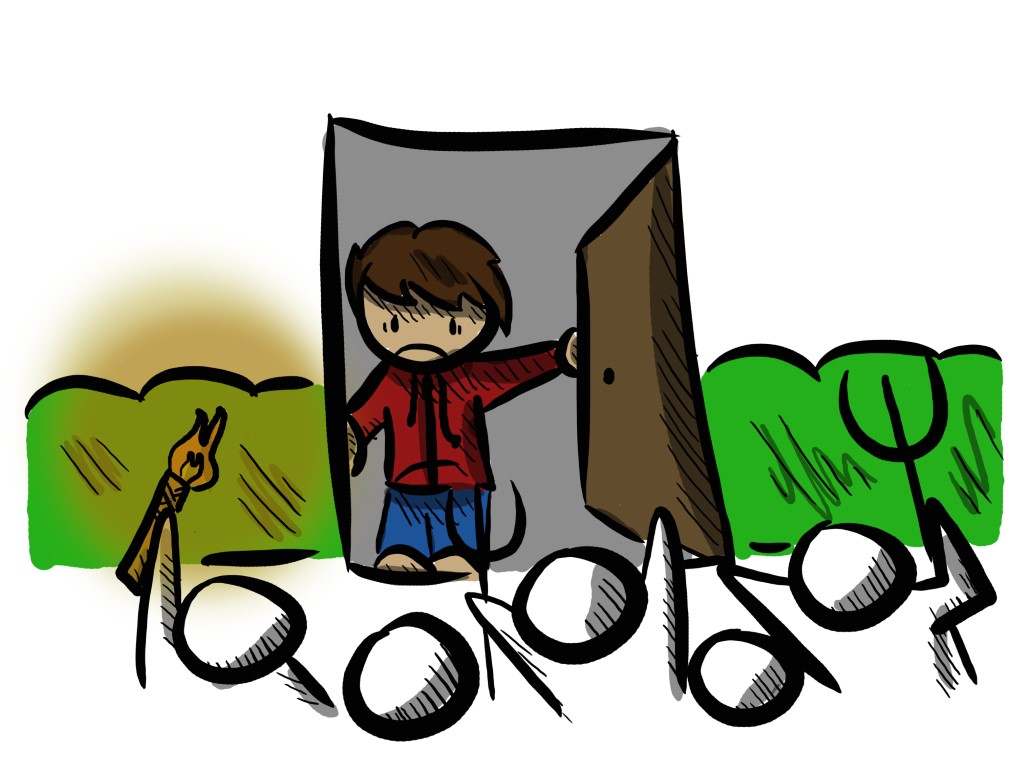
When a generation forgets how capitalism works
By Eric Wilkins, Contributor
As the world deals with COVID-19 (originating in Wuhan, China—not Italy or from the US military as some papers are starting to “report”), it’s disappointing to note how many on social media have decided now is the time to question the workings of capitalism. Cries for landlords to be guillotined, all countries to switch to universal healthcare, and business made to bear the financial brunt have reigned supreme. It’d be amusing if the speakers had done any homework. To break it down, it’s essentially those who have less wanting more from those who have more. It begs the question: what is equality? How much does your neighbour have to have before you’re entitled to her hard work? Or how much do you need to have before she’s entitled to what you have?
“I pay $800 a month in rent. So does every other person in my 30-unit building. That’s $24,000 a month for the landlord. I never even see him. Just that building manager who fixes things once-in-awhile. The landlord isn’t doing a job. Why do I have to pay him?”
It’s crazy that questions such as “Why do I have to pay him?” get any play. It’s crazy that people will pay for a service for an agreed-upon sum and then question the right of the person selling it to them. What? The landlord owns the building. You want to rent there. You’re paying for the right to live there. The difficulty is hard to spot.
The issue with the emerging generations is that many have (an idealistic, not practical) socialistic-leaning thanks to post-secondary, but none of the history or fundamental understanding that needs to come with it. We want everything to be readily accessible without struggle, and, as a point-of-principle, have extreme disdain for any with an advanced position in the existing infrastructure.
We all talk of how it’s impossible to buy a house due to the high cost of real estate and living, yet it’s forgotten that landlords have to buy the apartment complexes they run. These people didn’t appear out of thin air to steal your hard-earned dough. You think a house is expensive? Try putting up the capital for a 30-unit building.
To put things in real terms, a listing site (point2homes.com) currently has a 69-unit building for $28,500,000 (43 studios / 26 one-bedroom suites). A bit of digging reveals that studios go for about $1250 a month. Average for the area for a one-bedroom is approximately $2000 a month. That’s $1,269,000 a year. Even if the down payment was just a cool $5million, the landlord will spend more than 20 years paying off the building. And that doesn’t include repairs, tax, the manager’s salary, etc. Suddenly student loan figures don’t seem so bad.
So, no—you don’t have to pay a landlord. If you’re happy to put up several million dollars and take on the financial risk, go ahead. If you want to run your apartment complex or small walk-up like you feel it should be run, do it. Have every person just pay what they can. Don’t worry about the mounting debt. Don’t worry about the bank threatening to take your property if you default on your mortgage. Banks are nice. It’ll be fine.
It’s sad that post-secondary education has become so left-leaning that we’ve started to have conversations about restricting fundamental capitalistic procedures based on social ideals. If you’re the one behind the 8-ball for the cash, you’re the one who gets to call the shots. It’s frustrating that there’s any issue with that concept. Current generations want to call the shots and not take on any financial responsibility.
It’s similar to how there’s a growing clamour for minimum-wage employees to share in the profits of large companies. Take your local McDonalds: does the employee pay for the burgers? The buns? The hydro for the building? The rent? The benefits package? The insurance? Anything? If the store gets sued for a few million dollars, is the employee going to help pay off the lawsuit? What if the employee made a snafu and was the reason the company got sued? The answer to all of these is a resounding “no.” The company is taking on all of the risk and the employee is the one who has chosen a minimum wage job—a job and wage they took willingly and of their own accord.
“But I’m working hard and deserve to share in the profits!” Then buy shares. Literally no one is stopping you. A job is not a financial investment. A job is a personal investment of time that has already been accounted for financially by the agreed-upon wage.
Ever notice how most only want to apply their arguments to large corporations? The narrative disappears when we relate it to small business. Principles are principles because you can apply them across the board. They shouldn’t change based on the circumstances; any who disagree with this should immediately look into the world of flip-flopping politics.
While people will have an issue with McDonalds not
sharing profits, they’ll magically lose their train-of-thought when it’s about
their best friend who’s toiled at their home business for five years. Eventually
that friend hires one person to help take some calls. Should that person get a
share of the profits? Your pal started $50,000 in the hole and built the
company from nothing. Your friend stayed up night after sleepless night
scraping enough money together to stay in KD for the week. And now that things
are starting to get more comfortable, should the very minimal profits be shared
with this minimum-wage worker? This worker who has none of your friend’s
experience, credentials, or personal investment? And if the worker is worthy of
sharing in the profits, should not they also contribute to the costs and losses
that were incurred before their arrival? Should the employee only share in
profits once your friend is making some decent bank?
Of course not.



